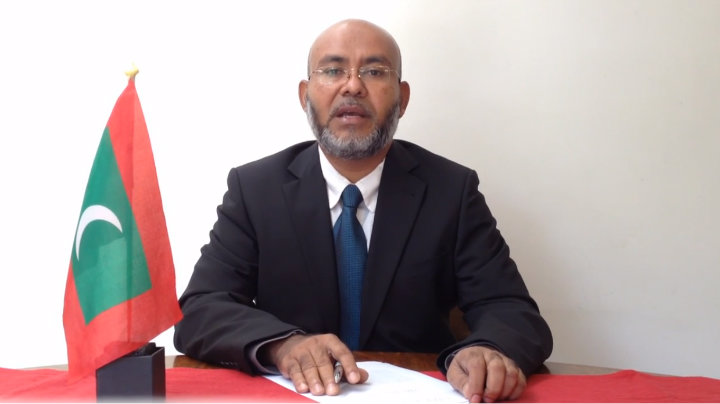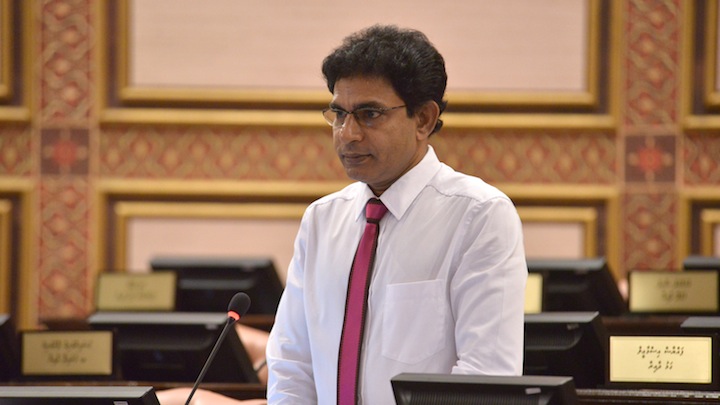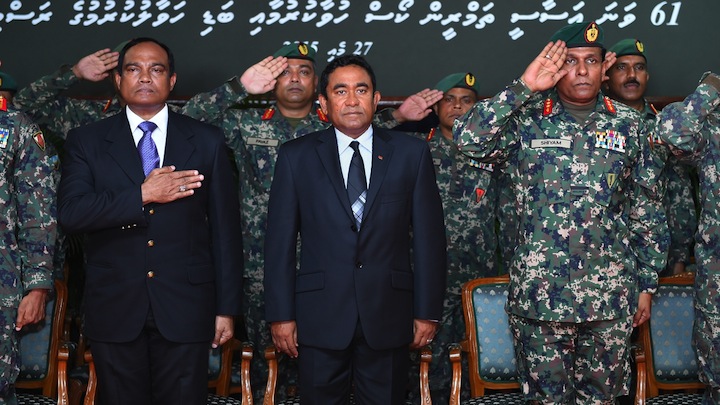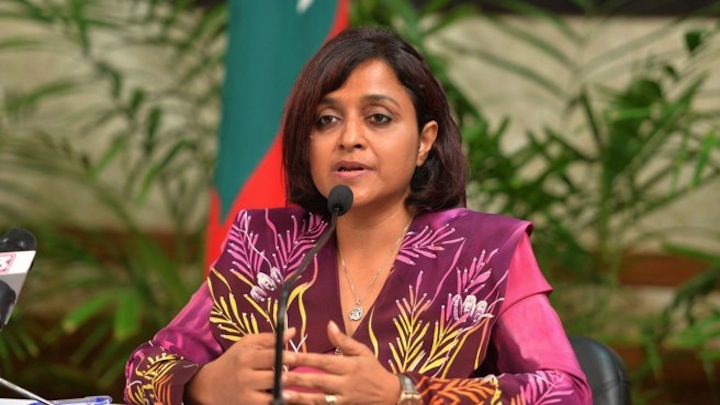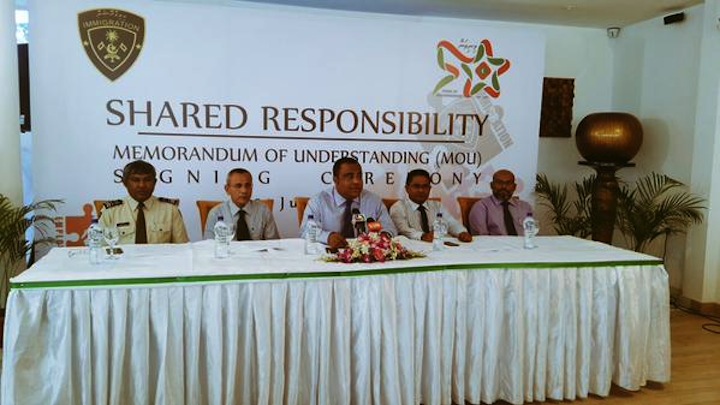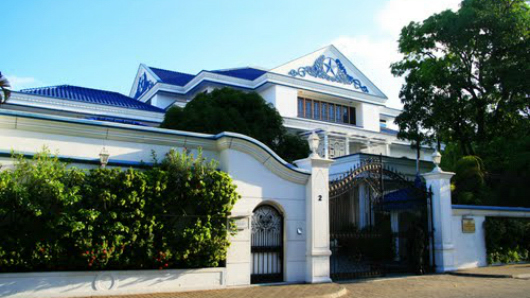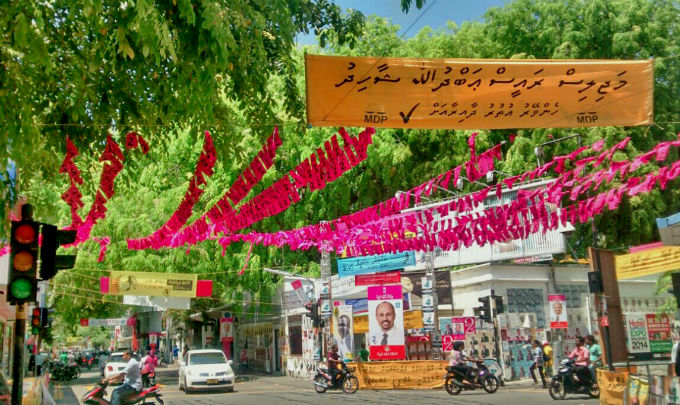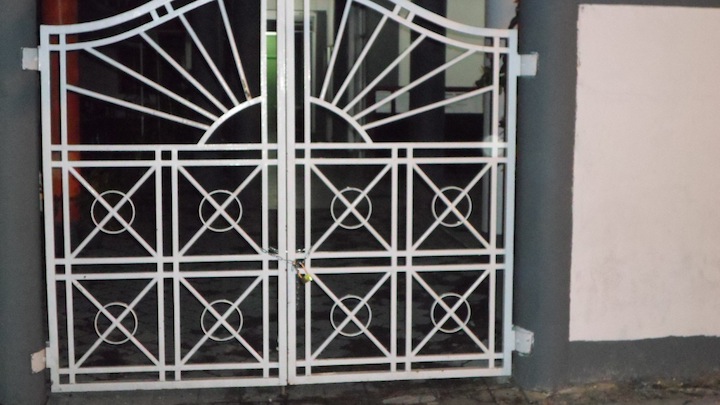An opposition politician who was charged with terrorism this week has sought asylum in a foreign country.
In a video message published on You Tube last night, Jumhooree Party (JP) council member Sobah Rasheed said he has obtained asylum in an unspecified foreign country, to avoid prosecution by President Abdulla Yameen’s adminsitration.
“I am currently abroad, under a foreign government’s protection. I have come here to further serve the Maldivian people. I had to come here to avoid being a sacrifice to Yameen’s tyranny, because I can only further serve the Maldivian people if I make this move.”
Sobah, the Adhaalath Party president Sheikh Imran Abdulla and JP’s deputy leader Ameen Ibrahim are accused of inciting violence at a historic anti-government protest on May 1.
If convicted under the 1990 Anti-Terrorism Act, the three face between 10 and 15 years in jail.
Nearly 20,000 protesters took to the streets on May Day, demanding the release of ex-president Mohamed Nasheed and ex-defence minister Mohamed Nazim, whose arrests sparked the ongoing political crisis.
Sobah pledged to launch an international campaign seeking sanctions against President Yameen’s government. He said he will inform the international community of Yameen’s tyranny, corruption and prosecution of political leaders, as well as the businesses who prop up the government.
“I will especially highlight the politically motivated trials conducted by the authoritarian, evil and corrupt judges in the criminal court, in partnership with Yameen and [the tourism minister] Adeeb, and the bribes these judges have taken.”
He also said he would reveal details of those who murdered ruling party MP Afrasheem Ali in 2012.
Sobah pledged to continue his campaign until the government releases Nasheed and Nazim from jail, and stops targeting JP leader Gasim Ibrahim’s businesses.
Sheikh Imran has denied charges at a first hearing on Sunday.
Sobah and Ameen’s trials were set to begin on Sunday, but were cancelled as they are out of the country.
Gasim has been in Bangkok since late April. The criminal court has reportedly issued an arrest warrant for Gasim for a charge of funding the May Day protest.
The tax authority in May froze Gasim’s Villa Group’s accounts claiming the company owed the government US$90.4million in unpaid rent, fees and fines.
Gasim insists the claim is unlawful and is contesting it at the civil court.
The main opposition Maldivian Democratic Party (MDP) chairperson Ali Waheed was also arrested on May 1, but the PG office has reportedly not made a decision on prosecuting the former MP.
The terrorism charges follow President Yameen’s invitation for separate talks with the three allied opposition parties. Imran, Ameen, and Ali Waheed are among the representatives of their respective parties.
The May Day demonstration was the largest anti-government protest in Maldivian history. Riot police cracked down on the demonstration with tear gas, pepper spray and baton charges after protesters attempted to enter Malé’s restricted Republic Square at dusk.
Nearly 200 people were arrested and scores of protesters and some police officers were injured during violent clashes.
The terrorism charges against Sheikh Imran also comes after President Yameen threatened to prosecute the religious conservative party’s leader over allegations linking the president to the murder of Dr.Afrasheem.
The opposition has called for a third mass protest on June 12.
